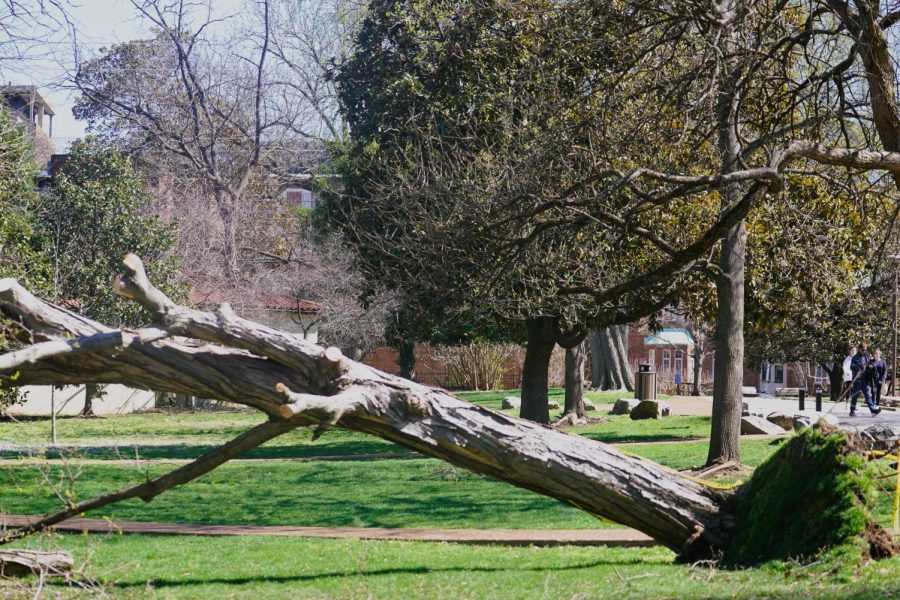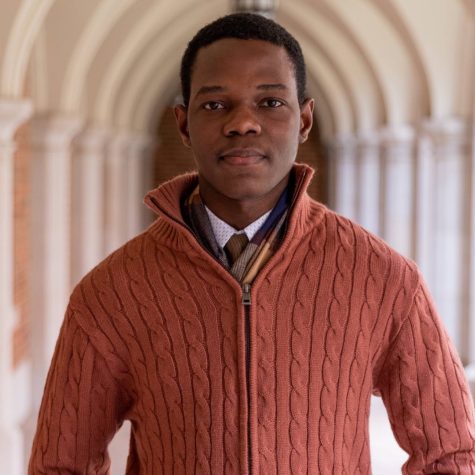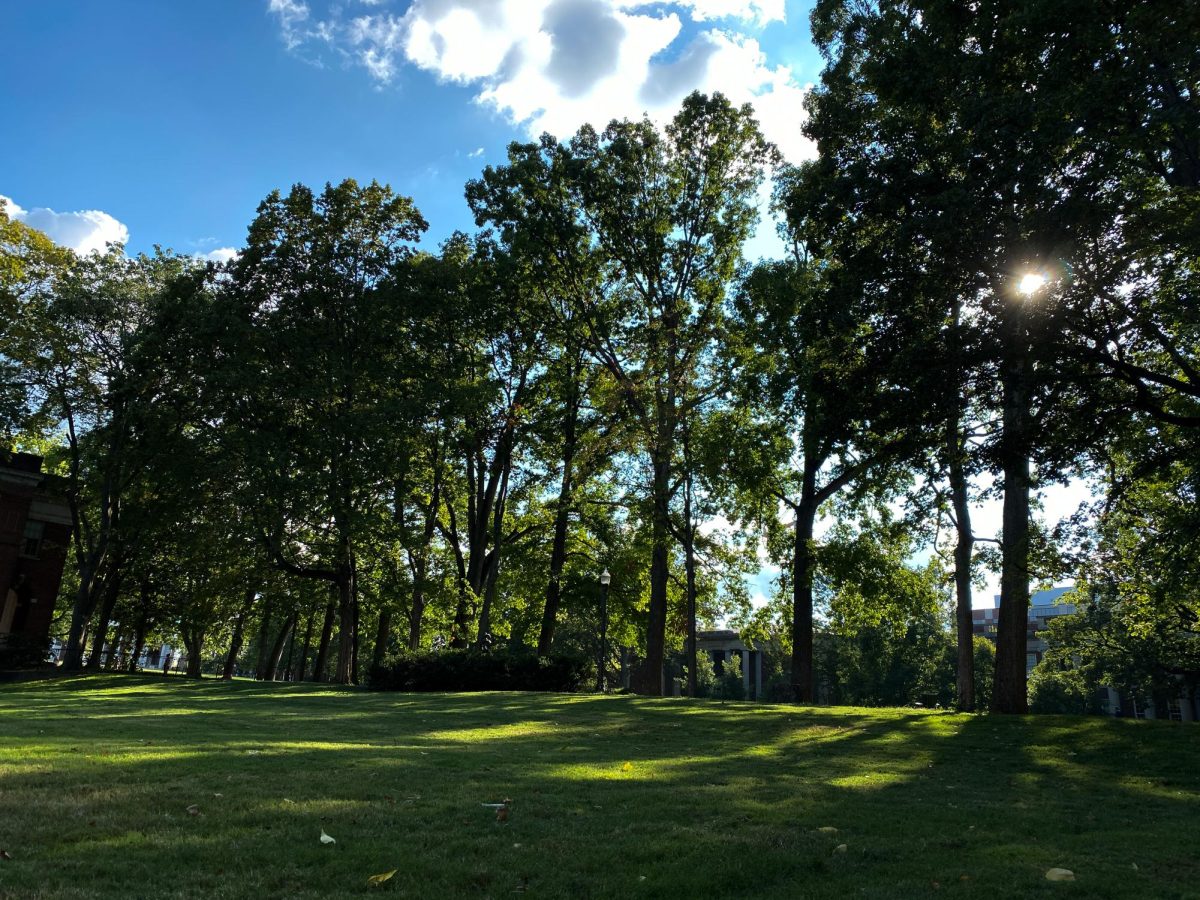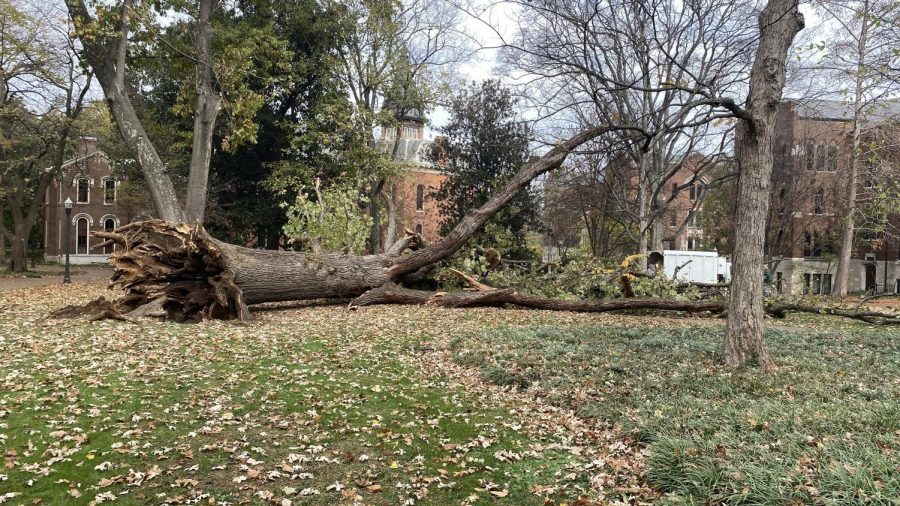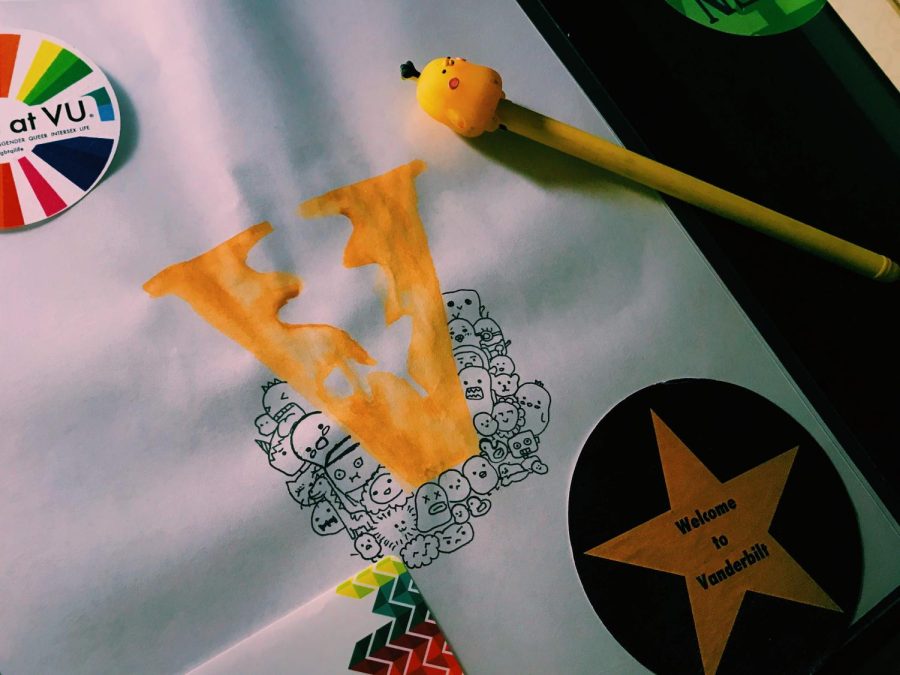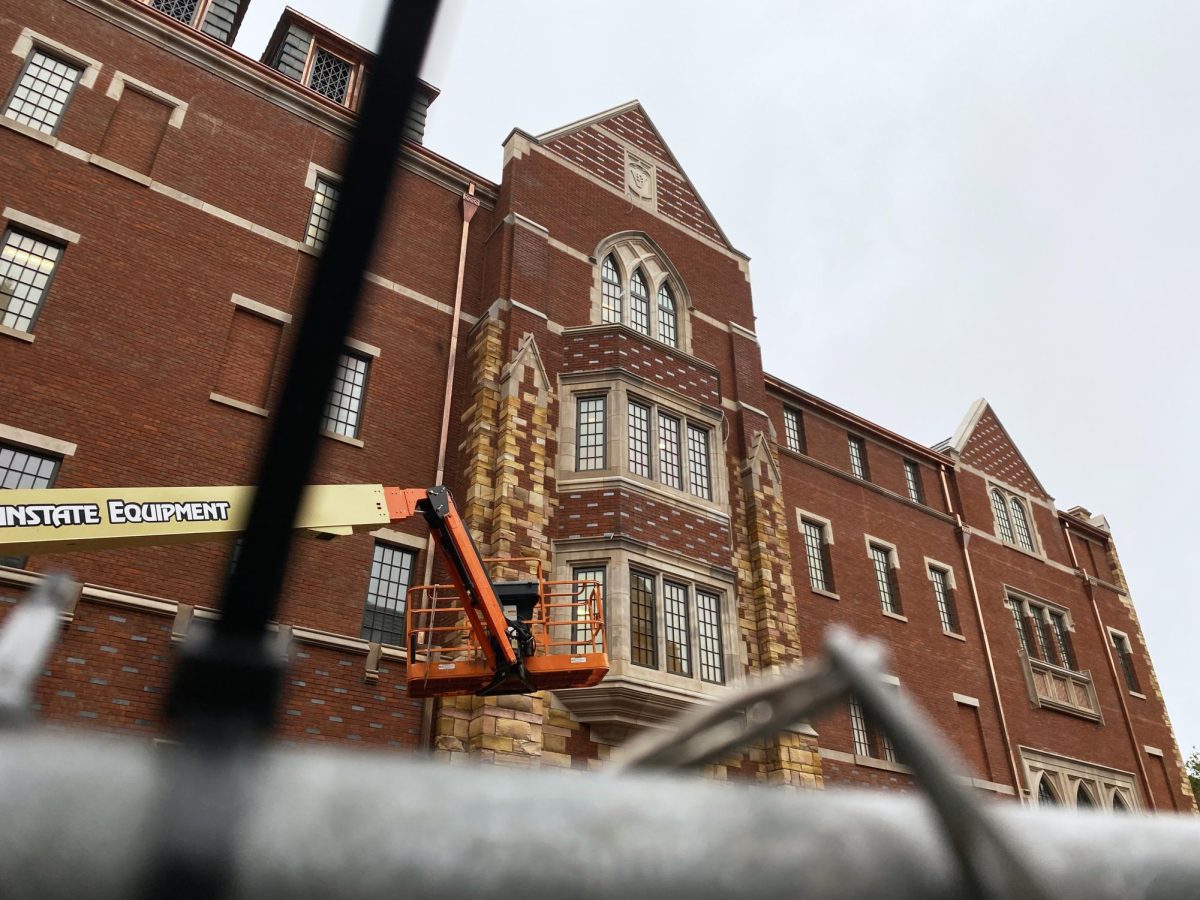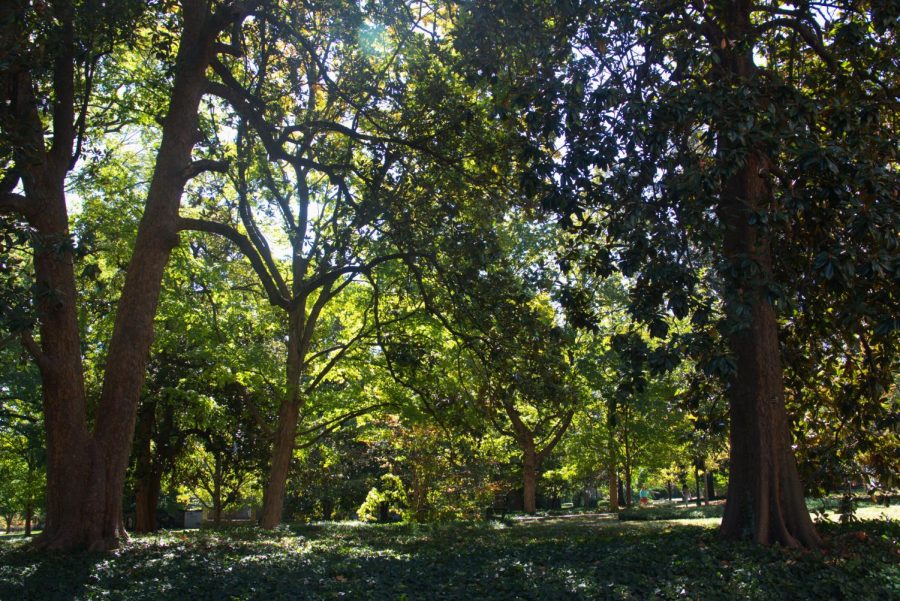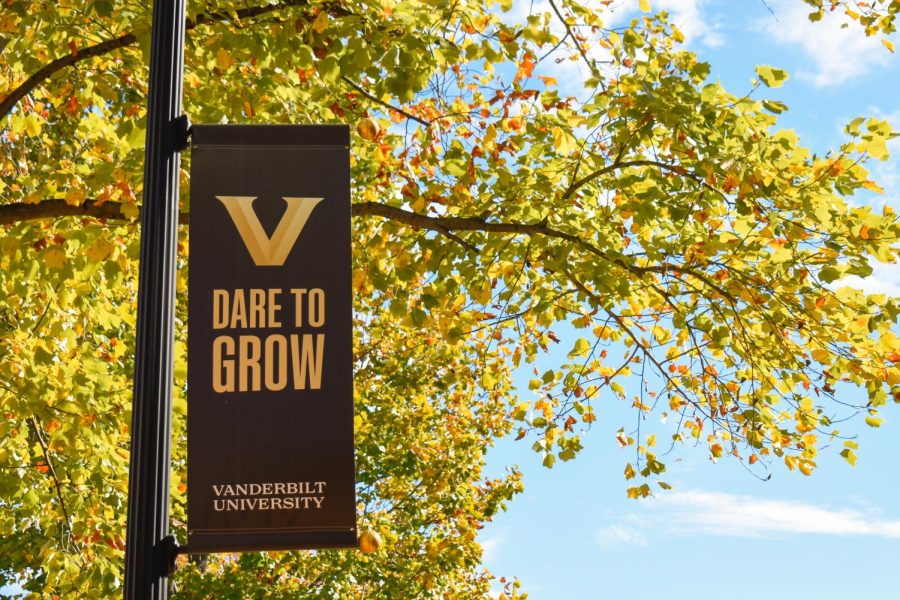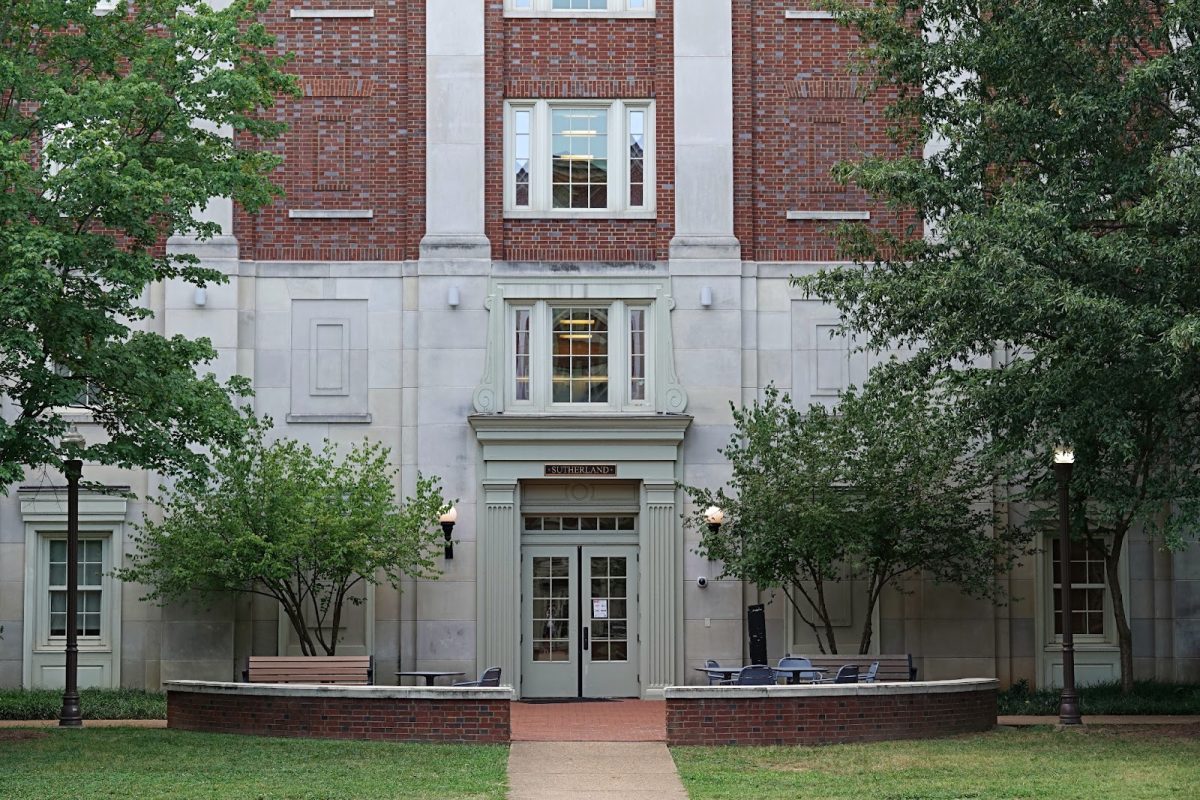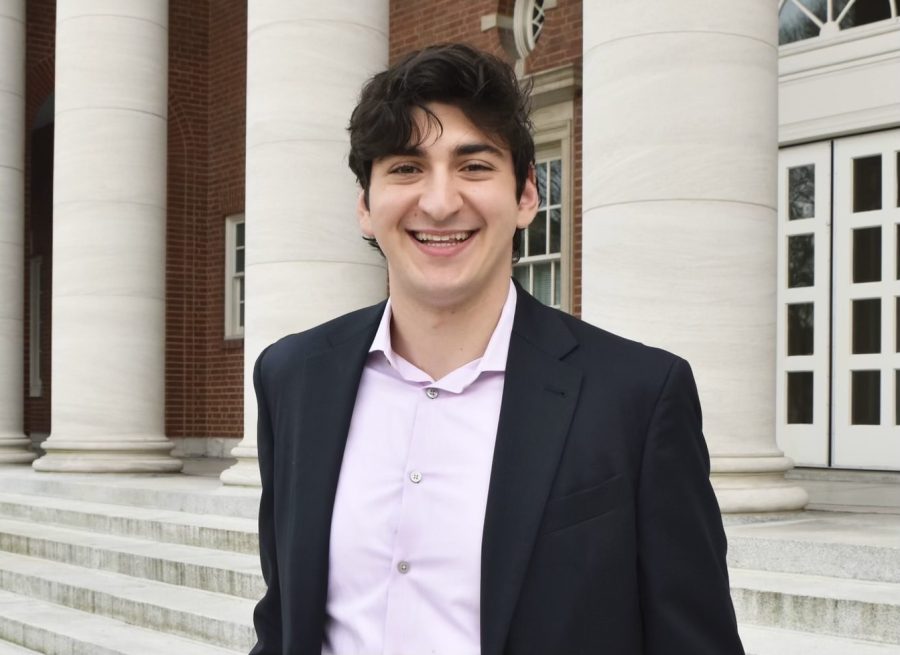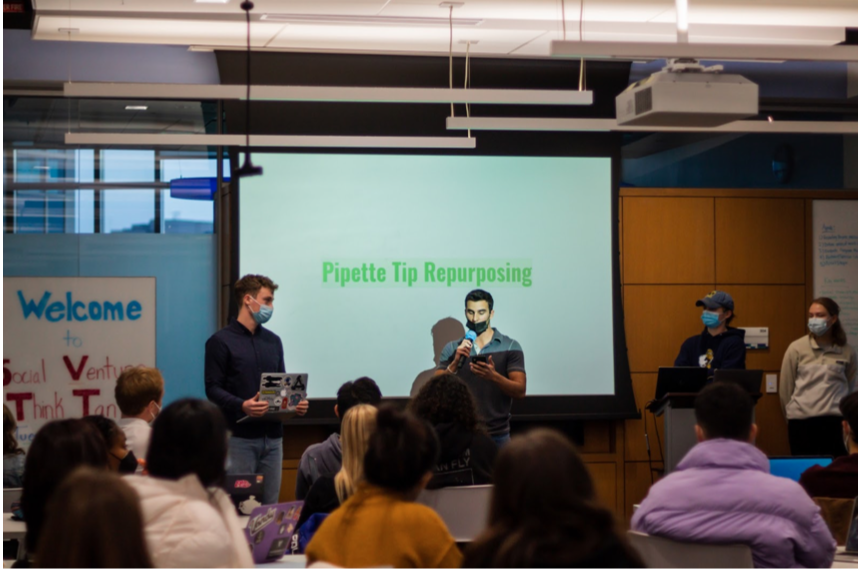The university’s new Tree Replacement Policy requires campus planners to replace on-campus trees that are removed during construction.
This policy comes after the fall of the Bicentennial Oak in November 2022, a tree that predated the university’s founding. Severe weather during a March 2023 storm also left 21 trees dead and an additional 12 damaged across campus, according to a representative of Plant Operations.
The university implemented the policy as part of its FutureVU initiative in November 2022 semester but announced it to the student body in February. This initiative, which was launched in 2015, includes environmental sustainability goals intended to guide Vanderbilt over the next 20-30 years. One such initiative includes “preserving and expanding the campus’ park-like setting.”
Vanderbilt as an arboretum
In the press release about the initiative, the university stated that the Tree Replacement Policy will be run in partnership with the university’s Arboretum Advisory Committee. Vanderbilt is the only university with arboretum status in Nashville, which designates it as an area devoted to maintaining a large variety of tree species.
Judson Newbern, who previously worked as deputy vice chancellor for facilities & environmental affairs until his retirement in 2017, expressed excitement about the new policy.
“I’m so glad Vanderbilt is continuing to invest in its tree resource that sets it apart from many other campuses, both aesthetically and in supporting the quality of our local environment,” Newbern said.
Under the Tree Replacement Policy, construction site project managers are required to submit a worksheet to University Landscape Architect James Moore during the early stages of a project that outlines expected effects on trees at the site. The policy also requires project managers to consider the impact of construction on tree root zones, which if damaged, make it easier for trees to fall.
A Plant Operations representative described the vision behind the policy.
“It is meant to be a tool that guides good design decisions towards preservation if possible, and replacements when necessary,” the representative said.
According to the new policy, any trees that must be removed or are to be negatively impacted by construction must be replanted within the site’s boundaries. Where this practice is not feasible, the university must plant a new tree elsewhere on campus as part of a “tree bank” initiative.
While the policy is targeted at the voluntary removal of trees for construction or maintenance, a Plant Operations representative said the university is committed to planting trees annually outside of typical construction activities, resource permitting. The representative reported that, over the past two years, the university has planted 55 trees on campus.
The policy comes amid significant construction on campus, including Residential College C and renovations on Kirkland Hall. The Vandy United construction of sports facilities also broke ground in February, and the demolition of Highland Quad to replace it with a residential college is set to begin in 2024.
Metro Nashville Horticulturist Jennifer Smith expressed her support for the policy’s tree bank initiative, explaining that it provides for succession planting on Vanderbilt’s campus.
“It’s getting into the vernacular that trees are a utility, and they appreciate in value. As they grow, they provide more assets,” Smith said.
Moore, who also serves as the chair of Vanderbilt’s Arboretum Advisory Committee, said in an email to The Hustler that the policy emerged as a way to codify the tree replacement work the university does.
“Because Vanderbilt is not 100 small projects, but rather a unified campus, this policy helps us think about tree replacement on a campus-wide scale, instead of project-by-project basis,” Moore said.
The final feature of the new policy mandates the reuse of logs from fallen trees. The Arboretum Advisory Committee will make recommendations about how wood can be reused in construction projects on campus. Newbern said this initiative was put into practice during the expansion of the Owen Graduate School of Management. Red oaks that were removed to make space for the construction were used to build conference room tables that were then placed in the building. The university is currently deciding how to reuse the wood from the Bicentennial Oak.
Although Vanderbilt is an arboretum, it does not join neighboring Tennessee institutions as a Tree Campus, a certification which involves the greater Nashville community in decision-making about tree canopy preservation on campus. Moore declined to explain why Vanderbilt has chosen not to be a Tree Campus.
According to Smith, Belmont University received its ninth Tree Campus certification. She said the university was honored with the annual award at Nashville’s Arbor Day celebration with Mayor John Cooper on March 22.
The Tree Campus certification is part of the Tree Campus organization’s work in promoting tree canopies on over 400 campuses across the country. Belmont joins six other colleges in Tennessee that are recognized with this certification.
Smith said she hoped Vanderbilt would consider becoming a Tree Campus, citing the university’s 340-acre campus as substantial space to promote an urban forest.
“As Vanderbilt goes forward, it would be a very positive thing not just for the campus but for the whole city,” Smith said.
Tree losses on campus
According to a representative of Plant Operations, two spring storm events resulted in lost trees on campus. Those storms, which occurred on March 3 and April 6, were the only severe weather events during this school year that felled trees.
During the severe weather on March 3, Plant Operations reported that rain and wind felled 21 trees and damaged a dozen others. Falling branches and tree trunks as a result of this storm damaged cars outside the Owen Graduate School of Management, and students reported mobility concerns.
After damage to trees on Vanderbilt’s campus this year, students shared concerns for the university’s canopy.
“Classes should have definitely gone on Zoom if possible given the unpredictable nature of where branches fall and the potential disabilities students may have as well as just general safety,” senior Rahan Arasteh said.
After the storm, Plant Operations removed an additional four trees due to failure in their root systems, citing safety reasons.
“Vanderbilt Facilities staff continue to monitor, proactively manage and preserve our arboretum and decrease risk to the community,” Plant Operations said in a message to The Hustler.
First-year Willy Theodore said he was walking outside on March 3 when he saw a tree fall near Owen and Calhoun Hall.
“I heard a loud snap to my right, and I saw a large tree outside Owen plummet to the ground,” Theodore said. “Fortunately, no one was directly next to the tree. I stopped for a few moments to look at the fallen tree but then quickly walked to class because I was worried more trees would fall.”
Smith, who grew up in Nashville, said the recent severe weather events can be seen as part of a growing pattern of storms that were not as common a few decades ago.
“We are losing a lot of tree canopy due to storms. That’s just one more reason why people need to understand the benefits of trees,” Smith said.
Smith also stated that trees can provide services for the environment such as stormwater management and protection against flooding. Smith added that the trees on Vanderbilt’s campus have traditionally provided some of those services to the campus and broader community.
After the fall of the Bicentennial Oak drew the community’s attention in Fall 2022, students have also been reflecting on the importance of trees on campus. Arasteh added that preserving the university’s canopy is critical for future generations of Vanderbilt students.
“We lost what many on campus thought would be our strongest tree last semester. The trees form a central part of Vandy’s campus,” Arasteh said. “They’re the first thing you notice when you visit, and the last thing you see when you leave. It’d be a travesty if they aren’t well taken care of to make sure we keep them for future Vandy students.”











